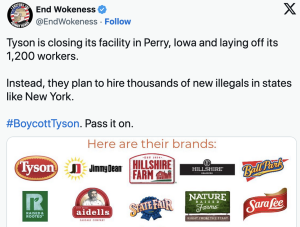VW Workers file for union election
It seems as if the United Auto Workers (UAW), union is getting what it wanted. After staging successful strike action last summer, and giving a very public commitment to wanting to win over other non-unionized autoworkers, it has been announced that Volkswagen workers in Chattanooga, Tennessee, have filed a petition to join the UAW. The Tennessee plant is currently the only Volkswagen plant globally without union representation, according to the UAW, and it claims the supermajority of workers at the plant signed union authorization cards. Speaking to The Guardian, Isaac Meadows, a production team member said: “Today, we are one step closer to making a good job at Volkswagen into a great career.” He added: “Right now, we miss time with our families because so much of our paid-time-off is burned up during the summer and winter shutdowns. We shouldn’t have to choose between our family and our job.” He added: “By winning our union and a real voice at Volkswagen, we can negotiate for more time with our families.” Success here follows the UAW Union gaining record deals for workers at Ford, General Motors, and Stellantis. Since then, the union has launched a huge campaign aimed at organizing 150,000 workers at non-unionized auto plants. The union announced plans in February 2024 to devote $40 million toward organizing auto and battery workers over the next two years.
Want to stay remote? Fine, but you won’t get promoted…
The ongoing battle to press-gang workers back into the office has moved up a gear, after it was reported computer giant, Dell, has told staff that if they want to stay remote it’s their decision – but they won’t get promoted. According to HR Grapevine, Dell has sent a memo to staff, confirming that career progression depends on whether staff meet its criteria for remote/hybrid work. It says: “For remote team members, it is important to understand the trade-offs: Career advancement, including applying to new roles in the company, will require a team member to reclassify as hybrid onsite.” To qualify as a hybrid worker, Dell employees must now work from an “approved” office for a minimum of 39 days per quarter – which equates to approximately three days per week. It’s also being claimed that in addition to limiting employees’ career progress, remote workers will also receive no funding for team onsite meetings and their remote status will be considered when planning organizational or structural changes such as workforce reductions. In February, Dell said: “We believe in-person connections paired with a flexible approach are critical to drive innovation and value differentiation.” Dell has not yet publicly responded to the criticism over its RTO and career progression policy.
…as data shows US workers feel isolated and lonely
Findings from the latest TELUS Mental Health Index (which examines the mental health of employed people in the United States, Canada, the United Kingdom, Europe, Singapore, New Zealand and Australia), has found Americans feel lonely and isolated. Data from the US-specific report reveals workers under 40 are 70% more likely than workers over 50 to say they don’t have trusted relationships at work, leading to feelings of isolation. In addition to this, it finds workers who don’t feel valued and respected by their colleagues (or are supported by their workplace), are twice as likely to report that their mental health adversely affects their productivity compared to workers who feel valued and respected. Overall, the researchers gave US workers a mental health score of 70.7 (with scores of 0-49 corresponding with distress; scores between 50-79 corresponding with strain and scores of 80-100 corresponding with optimal levels of mental health). Said Leigh Wendtland PhD, clinical psychologist and senior clinical director, TELUS Health: “With the negative physical and mental impacts of isolation now being discussed more broadly, it would be wise for employers to acknowledge it as a health risk and prioritize meaningful social connections in the workplace to support employee wellbeing.”
Food manufacturer slated for firing 1,200 staff, then announcing plans to hire illegal immigrants

Food maker, Tyson, is facing a major backlash after it was alleged to have fired 1,200 American staff, while at the same time wanting to hire illegal immigrants. It is reported that the company was shutting down an Iowa pork factory – which will lead to the elimination of 1,200 jobs – but in Manhattan it wants to hire thousands of illegals for a plant in Tennessee, after joining the Tent Partnership for Refugees, an organization that seeks to empower illegal aliens in the US. According to Fox News, Tyson hired 87 illegals with its first event in cooperation with the organization and then said it would ultimately like to hire up to 42,000 migrants. In response to this, Sen. J.D. Vance (R-OH) said: “All we know is that they are firing American workers and hiring illegal aliens to replace them.” Since the news broke, social media users have campaigned for Americans to boycott the brand. But Tyson – in response to the backlash – says the news is misinformation. In a statement it said: “In recent days, there has been a lot of misinformation in the media about our company, and we feel compelled to set the record straight.” It added: “Tyson Foods is strongly opposed to illegal immigration, and we led the way in participating in the two major government programs to help employers combat unlawful employment, E-Verify and the Mutual Agreement between Government and Employers (IMAGE) program.”
Sanders introduces bill for 32 hour week
Veteran politician, Bernie Sanders, has introduced a bill that seeks to adopt a 32-hour working week for those on hourly pay. Sen. Bernie Sanders, the far-left independent from Vermont, argues that advances in automation, robotics and artificial intelligence mean companies can afford to give their staff more time off without cutting their pay or their benefits. According to the detail of the bill, the working week would be reduced from 40 to 32 hours, and employers would be prohibited from reducing their workers’ pay and benefits to match their lost hours. People who currently work Monday through Friday, eight hours per day, would get be able to add an extra day to their weekend, while workers eligible for overtime would get paid extra for exceeding 32 hours in a week. Sanders has proposed that the working time reductions would be phased in over four years. The first hearing was held last Thursday in the Senate Health, Education, Labor and Pensions Committee, of which Sanders is chairman. With considerable opposition from Republicans however, there is little expectation that the proposal to get very far in the Senate. GOP Sen. Bill Cassidy of Louisiana said: “It would threaten millions of small businesses operating on a razor-thin margin because they have workers, but only for three-quarters of the time. And they [would] have to hire more.”
Divisive political landscape blamed for hostility in workplaces
America’s increasingly divisive politics is being blamed for causing growing hostility in the nation’s workplaces, according to Johnny C. Taylor, chief executive of the Society for Human Resources Management. In a poll of more than 1,000 US workers, the SHRM found two-thirds had witnessed incivility at work during the previous month and some 57% had seen it during just the previous week. Moreover, a third of respondents said they believe the problem will get worse during the next 12 months as Donald Trump and Joe Biden are set to lock horns for the keys to the White House. Taylor said that about 20% of employees said political affiliations were contributing to a toxic environment. ‘Either they were made uncomfortable to the point of not speaking up or they were attacked, not physically, but verbally, or there were negative consequences in the workplace associated with their political values,’ he said. “You know you can’t say something to someone based upon their race, their gender, their national origin, etc.” said Taylor. “But it’s pretty much a free for all to openly discriminate or create a hostile environment for people based upon their political affiliation.” He added that the result of such a high level of incivility was a problem retaining staff, an impact on productivity and an overall stain on workplace culture.
Two-thirds of employees don’t understand what neurodiversity means
Surprising research from Eagle Hill Consulting has revealed that more than two-thirds of US workers (68%), are either unfamiliar with-, or do not understand the term ‘neurodiversity’. The finding, in new report – Neurodiversity in the Workplace: Are Organizations Overlooking Their Highly Capable Neurodivergent Employees When Creating the Conditions for Corporate Success? – also found only 16% of employees say there have been formal conversations about neurodiversity in their organization. Moreover, only 19% said they could confidently say that neurodiversity was part of their corporate diversity, equity and inclusion programs. The researchj also revealed that 69% of employees said their employer does not seek the advice or input from neurodivergent employees when designing office spaces, teams, and project management systems. According to the poll 57% of workers said training in sensitivity to social differences would be valuable, while 56% indicated they would be interested in training on managing neurodivergent employees. But, only 14% said that training is currently offered at their workplace.
